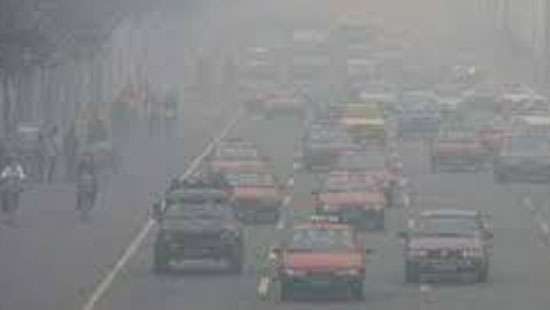Reply To:
Name - Reply Comment

National Building Research Organisation (NBRO) Senior Scientist Sarath Premasiri said today that air quality deterioration in Colombo could have been a result of the pollution in New Delhi which is categorised as hazardous.
DMC Spokesman Pradeep Kodippili told the Daily Mirror that the Central Environment Authority (CEA) had informed them that the content of particulates had increased of today.
DMC, CEA and National Building Research Organisation (NBRO), the Environment police and other organisations held discussions today and examined the situation. They determined that the content of gasses and the dust particles could reduce tomorrow.
He said there is no need to fear as it has been determined as the situation could start improving from today.
The DMC said those who are suffering from respiratory conditions such as asthma should be careful.
Meanwhile, the CEA said the rise of air pollution in the Colombo city had been recorded in the air quality monitoring unit which was installed in Battaramulla. At the same time, the US Embassy's Air Quality Monitor in Colombo indicated unhealthy values of air quality with 167 Air Quality Index (AQI) recorded by 10 p.m. on Tuesday. The index level between 151 to 200 indicates possible health effects for everyone.
CEA Deputy Director of Laboratory Services, Kamal Priyantha said the unit in Battaramulla was operational since June this year.
“We collect data daily from the machine. However, it takes time to analyze the data,” he said.
He added the reason for the level of air quality to be unhealthy was unknown.
Authorities were planning to monitor the dangerous particulate matter (PM) in air below 10 from June 5 to coincide with the World Environment Day.
“Particulate matter 10 contains microscopic solids or liquid droplets that are so small that they can be inhaled. They are injurious to health. Some particles less than 10 micrometres in diameter can get deep into a person’s lungs and some may even get into his/her bloodstream. The CEA introduced a colour code system. Besides, there are mobile monitors countrywide,” Mr. Priyantha added. (Yohan Perera and Sheain Fernandopulle)